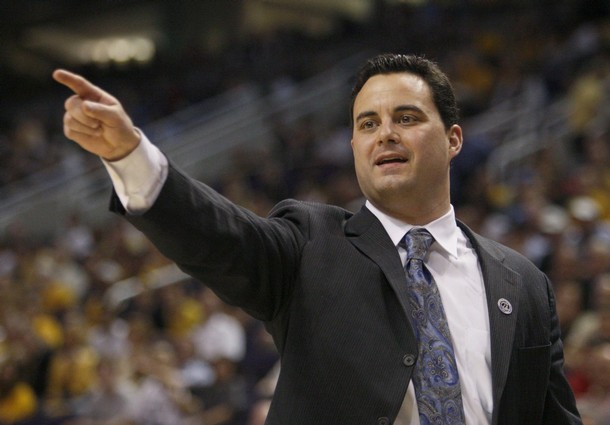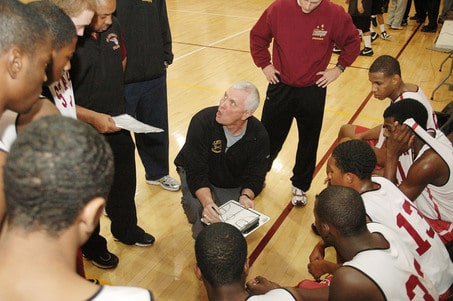
Top 10 Coaching Tips for New Basketball Coaches: What Every New Coach Needs to Know
Becoming a basketball coach is an exciting journey filled with opportunities to impact players’ lives and develop a successful team. For new basketball coaches, navigating the complexities of coaching can be challenging.
Here are the top 10 coaching tips to help you get started on the right foot and build a strong foundation for your coaching career.

1. Set Clear Objectives and Goals
Establishing clear objectives and goals is essential for guiding your coaching efforts and measuring progress.
Define Team Goals:
Set specific, measurable, achievable, relevant, and time-bound (SMART) goals for your team. These might include improving game strategy, enhancing player skills, or achieving a certain win-loss record. For example, you could set a goal to improve your team’s shooting percentage by 10% over the course of the season. By having clear goals, you can keep your team focused and motivated.
Individual Goals:
Work with players to set personal goals that align with their development needs and aspirations. This could include improving free-throw shooting, increasing defensive skills, or enhancing leadership qualities. Regularly review these goals and adjust them as necessary to ensure that each player is on a path toward improvement and success.

2. Develop a Coaching Philosophy
A well-defined coaching philosophy will guide your decision-making and interactions with players.
Core Beliefs:
Identify your core beliefs about coaching, such as your approach to discipline, player development, and game strategy. Consider questions like: What values do I want to instill in my players? How do I view winning versus player growth? A philosophy rooted in development rather than solely on wins can create a more positive experience for players.
Communicate Your Philosophy:
Clearly communicate your coaching philosophy to your players, assistants, and parents. This helps establish expectations and fosters a cohesive team environment. Consider holding a team meeting at the beginning of the season to discuss your philosophy and how it will guide your coaching practices.
3. Master the Basics
As a new coach, focus on mastering the fundamentals of basketball coaching.
Basic Skills:
Ensure you have a strong understanding of fundamental basketball skills, including dribbling, shooting, passing, and defense. Being well-versed in these basics allows you to effectively teach players and correct their techniques. Consider attending coaching clinics or workshops to deepen your knowledge.
Game Strategies:
Familiarize yourself with basic offensive and defensive strategies. Develop a solid understanding of game rules and how to apply them effectively. This knowledge will help you design effective practice plans and in-game strategies. Additionally, watch games at various levels to see how successful coaches implement their strategies.

4. Build Strong Relationships with Players
Developing strong relationships with players is key to building trust and fostering a positive team environment.
Open Communication:
Encourage open communication and actively listen to your players. Address their concerns and provide constructive feedback. Create an atmosphere where players feel comfortable expressing themselves, whether it’s about their roles on the team, their performance, or any personal challenges they might be facing.
Support and Encouragement:
Offer support and encouragement to help players build confidence and improve their performance. Celebrate their successes, no matter how small, and provide motivation during challenging times. A coach who genuinely cares about their players will inspire loyalty and effort in return.
5. Plan and Organize Effective Practices
Effective practice planning and organization are crucial for maximizing player development and team performance.
Structured Practices:
Create structured practice plans that focus on specific skills, drills, and game situations. Ensure that practices are well-organized and run smoothly. Each practice should have a clear purpose and flow, with a balance between skill work, team concepts, and scrimmaging.
Variety:
Incorporate a variety of drills and exercises to keep practices engaging and address different aspects of the game. Use competitive drills that promote teamwork and enhance skills under pressure. Players are more likely to stay engaged when they can see the relevance of the drills to their game performance.

6. Emphasize Player Development
Focus on developing each player’s skills and abilities to enhance their overall performance.
Individual Attention:
Provide individual attention to players based on their skill level and needs. Tailor drills and feedback to help each player improve. This may involve breaking down complex skills into manageable parts or providing extra resources for those struggling in specific areas.
Skill Progression:
Use progressive drills that build on basic skills and gradually introduce more complex concepts. For example, start with stationary shooting drills before progressing to shooting on the move or in game-like situations. This incremental approach allows players to gain confidence as they master each skill.
7. Foster Teamwork and Unity
Creating a strong sense of teamwork and unity is essential for a successful basketball program.
Team Activities:
Organize team-building activities that promote camaraderie and trust among players. These can range from social outings to collaborative challenges that require teamwork to succeed. The stronger the relationships among players, the better they will perform together on the court.
Encourage Communication:
Encourage players to communicate effectively on the court. Teach them the importance of calling out plays, providing feedback to each other, and supporting one another. Effective communication is a hallmark of successful teams, and it can be developed through practice and game situations.

8. Continuously Learn and Improve
The best coaches are always looking to learn and grow in their roles.
Seek Feedback:
Regularly seek feedback from your players, coaching staff, and mentors. Understand what is working and where you can improve as a coach. Be open to constructive criticism, as it can provide valuable insights into your coaching style and effectiveness.
Professional Development:
Participate in coaching clinics, workshops, and seminars. Read books and articles on coaching strategies, player development, and sports psychology. Staying updated on new techniques and philosophies will help you remain relevant and effective in your coaching.
9. Manage Game Situations Effectively
Understanding how to manage game situations is crucial for any coach.
In-Game Adjustments:
Learn to make in-game adjustments based on your team’s performance and your opponent’s strategies. Be observant and flexible; if something isn’t working, don’t hesitate to change your approach. Having a well-prepared plan and the ability to adapt can significantly impact the outcome of games.
Stay Calm Under Pressure:
As a coach, your demeanor during games sets the tone for the players. Stay calm under pressure, especially in close games. Your composure will help players focus and perform their best, regardless of the stakes.
10. Prioritize Fun and Enjoyment
Finally, remember that basketball is meant to be fun!
Create a Positive Atmosphere:
Encourage a positive and enjoyable atmosphere during practices and games. Celebrate successes, promote sportsmanship, and create memories that players will cherish. A fun environment not only enhances player experience but also fosters a love for the game.
Balance Competition and Enjoyment:
While it’s essential to strive for success, make sure to balance competition with enjoyment. Remind players of the joy of playing the game and the importance of teamwork, growth, and sportsmanship.
Top 10 Coaching Tips for New Basketball Coaches Conclusion:
By following these coaching tips, new basketball coaches can establish a solid foundation for their coaching careers, fostering a positive environment where players can thrive both on and off the court.
With passion, dedication, and a commitment to continuous improvement, you can make a lasting impact on your team and the game of basketball.



